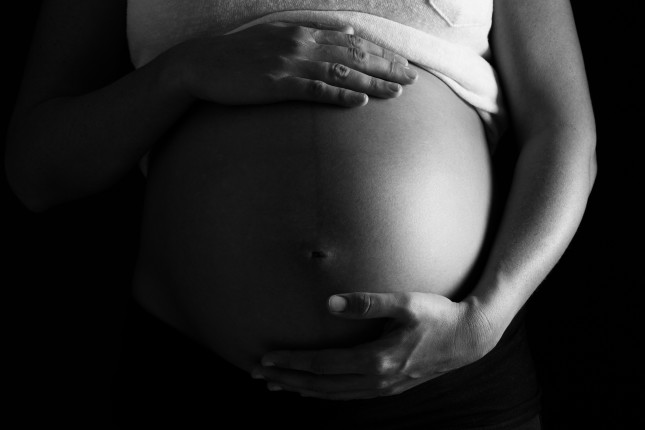-
Exposure to Air Pollutants and Heat Made Worse by Climate Change Impact Black Mothers the Most
June 26, 2020 By Leah Emanuel
Environmental exposures exacerbated by climate change are contributing to adverse pregnancy outcomes across the United States, with a disproportionate impact on Black women. A new study published in JAMA Network Open draws concrete connections between exposure to air pollution, ozone, and high temperatures during pregnancy and the likelihood of adverse pregnancy outcomes—premature birth, low birth weight, and stillbirth.
The authors analyze more than 32 million births in the United States through an examination of 57 studies spanning diverse U.S. populations and conclude that persons with asthma and minority groups, especially Black mothers, are disproportionately affected by these pregnancy complications due to increased climate change-related exposures. Three unique studies in California reported that for each 5.6°C increase in temperature, there was an increased risk of preterm birth. Another study in Florida found that for every 5km closer a woman lives to a solid waste plant that emits PM2.5—fine particles in the air with a diameter of less than 2.5 micrometers—there is a three percent increase in the risk of low birth weight. A study focused on stillbirth found that increased exposure to air pollutants in the final trimester increased the likelihood of a stillbirth by 42 percent.
Among the racial and ethnic groups included in the study, Black mothers are found to be especially vulnerable to these environmental exposures. Populations concentrated in urban areas with lower socioeconomic status are frequently exposed to more harmful pollutants. In the United States, these populations are largely comprised of racial and ethnic minorities, predominately Black. Ten studies found that Black mothers were at a greater risk of preterm births as a result of exposure to air pollutants and 13 studies indicated an association between racial and ethnic disparities, with minority mothers at a greater risk of delivering a low birth weight baby than white mothers. The researchers note that pregnant women in urban areas with higher exposure to pollutants and prolonged levels of high stress are more likely to experience impacted births.
This study adds to a continuously growing body of research that highlights the differing impacts of climate change on minority communities. As climate change worsens, air pollutants and high temperatures will continue to increase, disproportionately affecting the pregnancies of Black mothers in the United States, where Black women are three times more likely to die due to pregnancy-related complications than white women. This will further exacerbate the pre-existing social determinants of health impacting Black mothers and spotlight the racial disparities that have long existed within the United States. These disparities in maternal mortality are impacted by differences in exposure to environmental pollutants, quality of care, and racial biases within the healthcare system.
Continued research on the effects of environmental exposures and their links to health disparities is essential and should be prioritized. Women’s health experts, as well as the greater healthcare workforce need to recognize the growing collection of data supporting the connection between environmental factors and poor birth outcomes and incorporate the findings into patient care. Furthermore, any commitment to bettering maternal care must be coupled with a dedication to improve the racial disparities in the U.S. healthcare system. Witnessing these disparities most directly, physicians should promote more equitable patient care and advocate for more effective policy and action to address environmental health hazards.
Read more:
- Past research indicates links between rising temperatures and maternal health
- Women are disproportionately impacted by climate change
- Maternal mortality and urban environmental health vulnerabilities are spotlighted in developing countries
- Climate change will likely influence fertility rates
Leah Emanuel is a Wilson Center intern working with Senior Fellow, Sherri Goodman. She is currently a junior at Princeton University studying Anthropology, Environmental Studies, and Dance.
Sources: American Journal of Epidemiology, The American College of Obstetricians and Gynecologists, Center for Disease Control and Prevention, Environmental Health Perspectives, JAMA Network Open, Plos One.
Photo Credit: Shutterstock.com, All Rights Reserved.
 A Publication of the Stimson Center.
A Publication of the Stimson Center.






